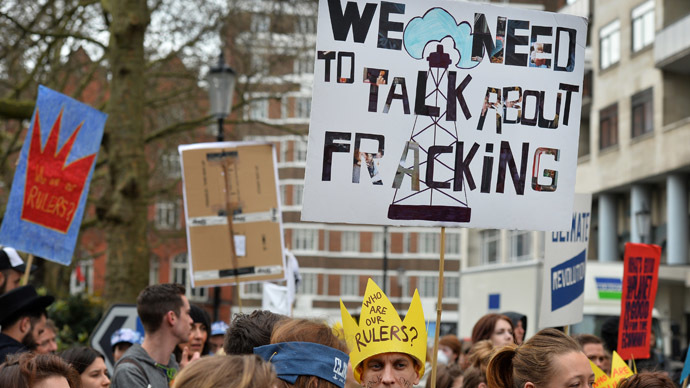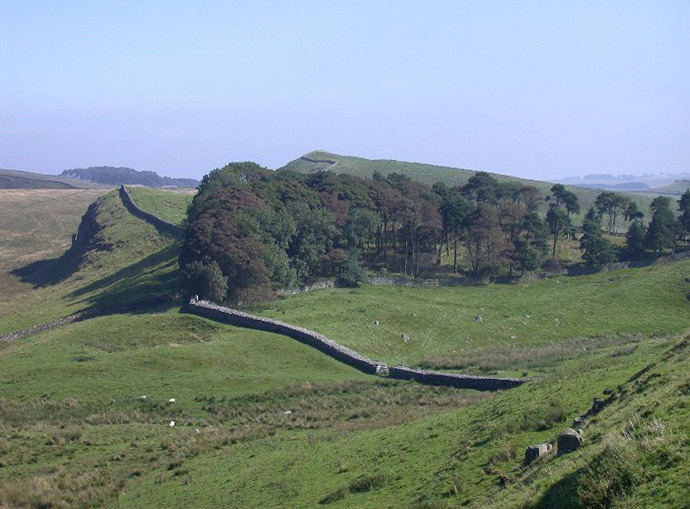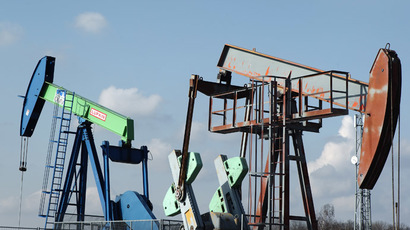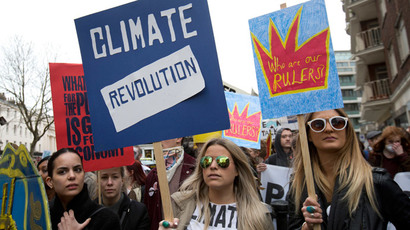Allow fracking in national parks, says UK Environment Agency chief

Fracking should be allowed to take place in national parks because its visual intrusion is minimal and the environmental risks have been “exaggerated,” according to the outgoing chairman of the UK’s Environment Agency.
Chris Smith, also known as Lord Smith of Finsbury, told the Times that if hydraulic fracturing – or fracking – is properly regulated, then it could be safe and “useful” in minimizing the UK’s reliance on climate polluting coal-fired power stations and imported gas. Smith is scheduled to step down from his post next month.
The controversial process of extracting gas trapped in rocks deep underground has been criticized by environmental campaigners and local residents who don’t want to see the British countryside ruined by fracking, as its impact on the environment and human health is still not completely understood.
Lord Smith said he does not agree with anti-fracking campaigners, accusing them of falling into two camps. The first camp, he said, are those who have local concerns about the “impact of drilling at particular sites.” He added that those concerns are “grossly exaggerated.”
The other group, according to Smith, are those who are against burning fossil fuels.
“I don’t agree with that analysis because we aren’t yet ready to see 100 percent of our energy requirements being produced from renewables. Over the next 10-20 years we are going to have to use fossil still and its [shale gas] much better to use than coal,” he said.

The comments are being treated as significant, as Smith is highly respected by environmental groups. His latest remarks are likely to cause an uproar amongst the National Trust, the RSPB, the Wildfowl & Wetlands Trust, and the Angling Trust, all of which have called for fracking to be banned in Britain's national parks.
Greenpeace has accused the government of preparing to “auction off” national parks and areas of outstanding natural beauty – such as the North Yorkshire Moors and the South Downs in Sussex – to fracking companies.
Dame Helen Ghosh, director general of the National Trust, said in an interview with the Guardian in April that she would outright refuse permission for companies to frack on its land. The National Trust protects historic buildings and spaces for the population to enjoy, although it by no means owns the majority of land in national parks – private landlords still own most of it.
“We don’t believe anyone understands the environmental impacts. And because we as far as possible would want to avoid anything that encourages the continued use of fossil fuels,” said Dame Ghosh.
Virtually all of the UK’s national parks have the potential for shale gas exploration, but the North Yorkshire Moors and the South Downs are particularly vulnerable, as they offer the most abundant shale gas supplies.
In May 2013, Celtique Energy had to abandon a plan to drill horizontally under the homes of residents in the South Downs. Local landowners near the fracking site won a “legal blockade” by citing trespass laws which allow owners to refuse permission for drilling under their land.
Ministers intend to change the trespass laws to make life easier for companies that want to extract shale gas, although it is estimated that at least three-quarters of the British public are against the law change.














